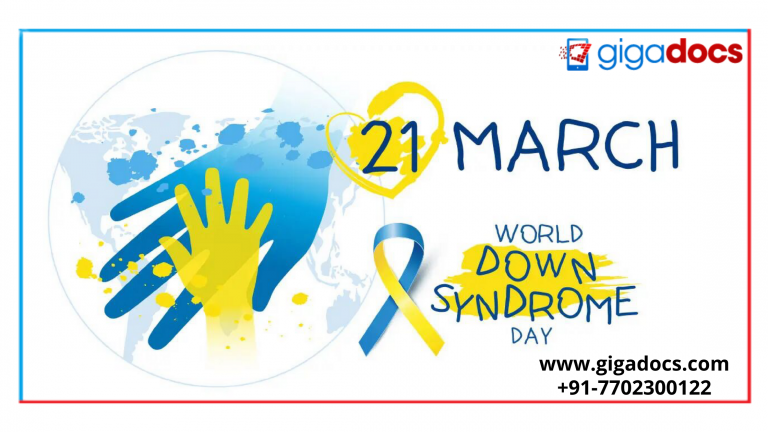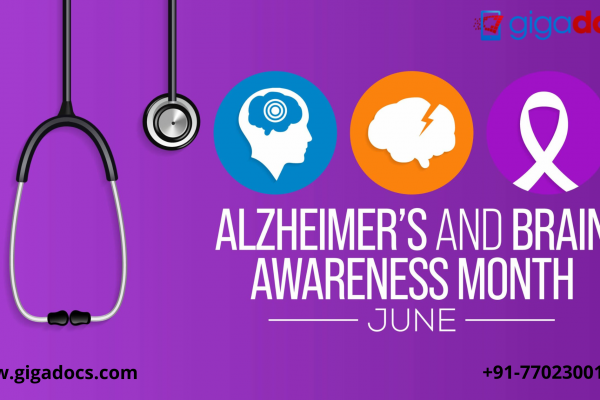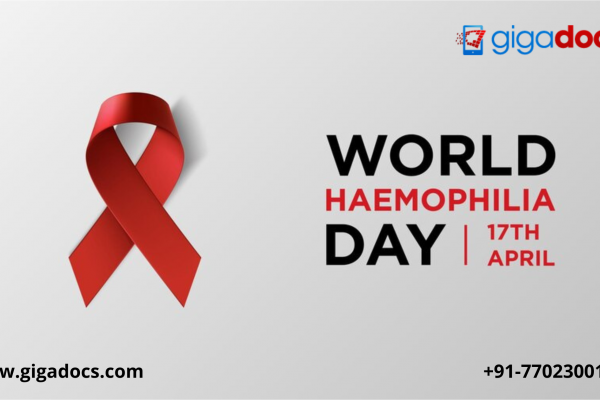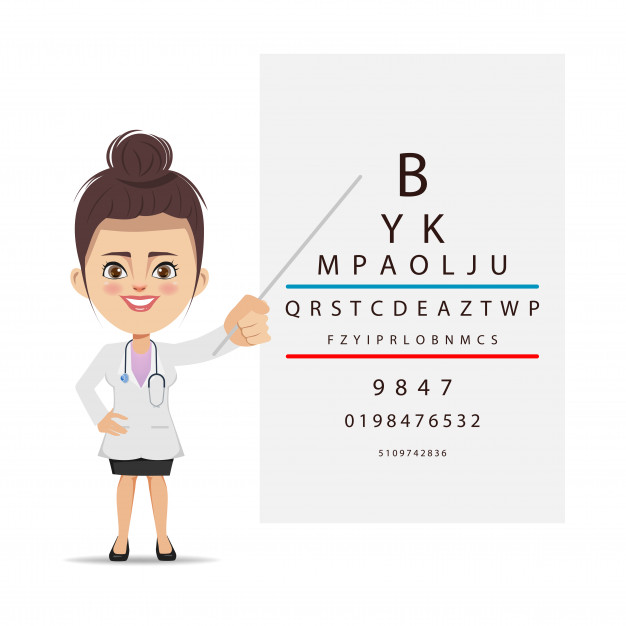What is Down Syndrome? It is a birth disorder in which a baby is born with an extra chromosome. Which are the body’s small “packages” of genes and shape a baby’s body as it develops during pregnancy and after birth. While a baby is born with 46 chromosomes, a baby with Down syndrome has an extra copy of chromosome 21.
A congenital heart defect affects nearly half of all Down syndrome children. A specialized ultrasound for the heart, called an echocardiogram, is performed on newborns to check for this. Additionally, hearing and vision problems affect about half of all children, caused by a buildup of fluid in the inner ear.
Though every child may look alike, however, every baby with Down Syndrome has their distinctive features. They may have mild to moderately low IQ and at the same time, they might speak slowly when compared to other children. While language and learning can be affected by vision and hearing problems, regular examinations by an ENT specialist and an ophthalmologist can detect and treat any issues. Other features include-
- Flat face. Especially at the nose bridge.
- Almond-shaped and slant up eyes
- A slender neck
- Small ears, hands, and feet
- Pink fingers that curve toward the thumb
- Muscle atrophy or sagging joints
- Shorter stature
Down Syndrome Types
Down syndrome is categorized into three categories:
- Trisomy 21: This is by far the most common type, in which chromosome 21 is duplicated three times instead of two in each cell of the body.
- Translocation of Down Syndrome: It is a condition in which each cell has a portion of or an entirely extra chromosome 21. However, instead of being on its own, it is attached to another chromosome.
- Mosaic Down Syndrome: The rarest form of Down syndrome, characterized by few cells having an extra copy of chromosome 21.
| World Down Syndrome Day World Down Syndrome Day, declared by the UN General Assembly on March 21, celebrates people with Down syndrome how they live and work. The day recognizes people participating in activities and events to raise public awareness, creating a single global voice advocating for the well-being, rights, and inclusion of people with Down Syndrome. |
Down syndrome can have several effects, and each person’s experience is unique. Some will be able to live almost entirely on their own as adults, while others will require more assistance.
Although mental abilities vary, most people with Down syndrome have mild to moderate difficulties with reasoning, thinking, and understanding. They’ll continue to learn and acquire new skills throughout their lives, but essential milestones may take longer, including walking, talking, and developing social skills.
Causes of World Down Syndrome Day
- Down syndrome affects people of all races and socioeconomic backgrounds, though older women have a higher risk of having a child with the condition. A 35-year-old woman has a one-in-350 chance of having a child with Down syndrome, which increases to one-in-100 by 40. At 45, the risk increases to about 1 in 30.
However, because younger women have higher birth rates, 80 percent of Down syndrome children are born to women under 35.
Down Syndrome and other Health Problems
Many people with Down syndrome have similar facial characteristics and no significant congenital disabilities. However, some people with Down syndrome may have one or more major birth defects or medical issues. The following are some of the more common health issues that children with Down syndrome face.
- Hearing loss is a common problem.
- Obstructive sleep apnea is a condition in which a person’s breathing stops for a brief period while sleeping.
- Infections of the ears and eyes
- Congenital disabilities in the heart
Down Syndrome Screening in Pregnancy
Routine prenatal tests can determine whether your baby is likely to have Down syndrome. If those tests come back positive or at high risk, you may want to have more invasive tests done to be sure.
You may undergo the following tests during the first trimester:
- Tests of the blood- In your blood, your doctor will check the levels of a protein called PAPP-A and a hormone called HCG. Any deviation from the norm could indicate a problem with the baby. They may also look for DNA from the baby in your blood to know if there is a risk of Down syndrome, which they can examine for chromosome abnormalities.
- Ultrasound- Your doctor will examine a photograph of your child and measure the tissue folds in the back of their neck. Down syndrome babies have a lot of extra fluid in their bodies.
You may undergo the following symptoms during the second trimester:
- Tests of the blood- Which checks other substances in your blood, such as the protein AFP and the hormone estriol, are measured by a triple or quad screen test. When those levels are combined with the results of the first trimester tests, your doctor can make an educated guess about the likelihood that your baby will have Down syndrome.
- Ultrasound- When your baby is older and more developed, an ultrasound can reveal some of the physical characteristics of Down syndrome.
Down Syndrome Complications
Down syndrome babies may have other physical issues at birth, and they are at a higher risk for certain health problems later in life. Hearing and vision problems, such as breathing problems like sleep apnea, asthma, and pulmonary hypertension, cross-eyed and cataracts, gastrointestinal disorders, such as blockages, childhood leukemia, reflux, and celiac disease, obesity, an underactive thyroid, seizures, and early-onset dementia are all possible Down syndrome complications.
Parenting a Child with Down Syndrome
- Assign chores to your child in the home, break them down into manageable chunks and be patient with the task being done.
- Allow your child to interact with children who have Down syndrome and children who do not.
- As your child tries new things and learns, keep your expectations high.
- Make time for each other to play, read, laugh, and go out.
- Encourage your child to complete daily tasks independently.
Gigadocs Telehealthcare for Down Syndrome
One of the most difficult challenges for parents of children with chronic health problems is balancing their role as caregivers with the demands of everyday life. Caring for a child with complex disabilities at home can be stressful and overwhelming for parents and caregivers.
Gigadocs telehealthcare improves access to health care by making it more convenient and, as a result, lowering costs and chronic conditions. Tele healthcare is a way to use mobile devices to help caregivers serve individual patients at home. It increases therapy access for people with physical, medical, and mobility disabilities, regardless of their geographic location.
Telehealth sessions by Gigadocs bring together Speech Pathology, Physiotherapy, Occupational Therapy sessions for parents with children with Down Syndrome. Download Gigadocs and reach out to our Down Syndrome specialists-
To help you manage your health and consult with the best healthcare providers, download the Gigadocs App from-
- IOS App – apple.co/2W2iG4V
- Android App – bit.ly/33AQoRC
To know more and schedule a Virtual Consultation demo, Email @ info@gigadocs.com




